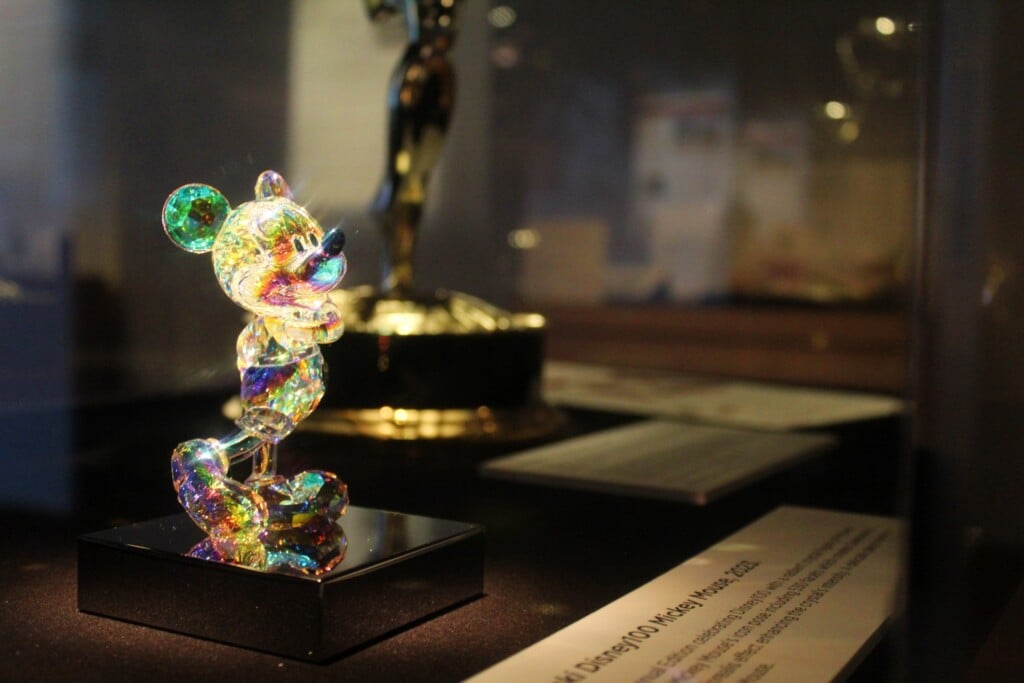Cabin Fever
The Cherokee word tittekaka means serial-killer bloodbath. Or so claims cunning linguist Ron Megee, who wrote and stars in Late Night Theatre’s latest extravaganza, The Killings at Kamp Tittekaka.
Having built a modest dynasty reinterpreting and gender-bending such films as Carrie and Valley of the Dolls, Megee breaks his own mold with Killings, an original “rockabilly opera” with references that range from Friday the 13th to Sweeney Todd but still asserts its own voice. An opening-weekend audience seemed to embrace going down this unfamiliar path and would have had hugs all around for the cast after the show if the actors hadn’t been covered with so much blood and gristle. It’s a messy show, but not in its construction.
The year is 1958. A bus is loading up that summer’s campers for Tittekaka. Introduced by signs spelling out their names in popsicle sticks are Hank (Megee), a fey, sensitive boy in tight madras shorts; Marty (Gary Campbell), who, in the kindest of terms, can only be called a Jesus freak; Lennie (David Wayne Reed), the Ivy League-bound Jewish lad; Irving (Cory James Dowman), a snarly, tough kid who throws the f-bomb into nearly every sentence; and Sid (Corrie Van Ausdal), an androgynous camper who may not be a boy at all.
A hint that their camp experience will be unusually treacherous comes before they even arrive. In a well-choreographed scene that is so mean and wrong it’s hilarious, a potential camper named Milton (Megee), known as “the boy with polio,” gets his crutch caught in the wheels and is dragged to his death. No tears are shed by his peers, though, who are too psyched to meet their camp counselors. Played briefly by the same actors, the counselors seem to come from an Aryan training center, their intent being to instill discipline via arts and crafts. (Their demeanor also provokes jokes comparing this camp to a few Nazi-run camps of the decade prior. It’s risky material that Megee slips in with finesse.) There’s also a masked man wielding a chain saw lurking about who conveniently helps with set changes. The central focus of Late Night’s small stage is a big, rotating cabin that, with a turn or two, serves as the cabins of the kids and the counselors. It’s in these wildly designed rooms (complete with a stuffed deer head) where young romance blossoms from camp’s first days. Lennie and Sid fall in love (once it’s revealed that Sid is female), as do Hank and Irving, whose sexually charged relationship can be equated with a marriage of convenience in, say, a prison. Marty is too loopy for his savior to have designs anywhere else.
The murders don’t commence in force until the second act, leaving time in the first to feature contextually appropriate nudity at the old swimming hole and, later, funny and gratuitous scenes in which someone will simply say, “Let’s strip down to our underwear.” The exposures aren’t at all indecent, though; these are pubescent kids who may as well sprinkle hormones on their morning cereal.
Meanwhile, we learn that Kamp Tittekaka has always had its problems. It seems that all of these kids’ parents attended in their youth and, either there or at later points in life, lost limbs, eyes or other body parts. (The adorable clubfoot Irving’s disability seems to be genetic.) So it’s not surprising when the campers start dropping like flies.
Megee writes stylized deaths for the kids — one improbable demise by egg beater may be silly, but the aftermath looks quite grisly. And in a climactic tableau of blood and guts, there’s a sly poke at The Passion of the Christ.
Megee, Reed and Campbell are experienced drinkers at the Late Night trough, so their skill at spinning Killings‘ raunchy and silly dialogue is no surprise. Van Ausdal had a small role in Dirty Dangerous Little Liaisons but shows no hesitation as a lead player. Dowman, barely out of high school, is as comically agile as a vet, playing a character who is essentially Grease‘s Danny Zuko had he flipped for one of his gang. Late Night has always excelled at camp as a concept, and the Kamp camp is a creative case of double dipping.
Postscript: By midnight on March 13, actor Missy Koonce’s Bar Natasha was so chock-full of actors, playwrights and theater professionals that, had a meteorite fallen upon it, Kansas City’s theater scene would have been largely decimated.
In one corner: Theater League President Mark Edelman, along with his diminutive star of both Late Night Catechisms. Along the perimeter: actor and writer Ry Kincaid (prepping for his show about James Dean, Little Bastard, in a pointy pair of cowboy boots), there with his own Velveteen Rabbit, Jessalyn Kincaid; and Everyday Heroes author Laurie Brooks with Coterie artistic director Jeff Church and her grown children, in town for her opening weekend from points east.
The Killings at Kamp Tittekaka cast (some of them still smeared with stage blood) flitted about more than the other performers but always migrated back to the smokers’ couch (where the cigars were just cigars). And American Heartland Theatre musical director Anthony Edwards usurped the piano for a while. By last call, it seemed as though the only working theater artist not there was the Unicorn’s goat.




